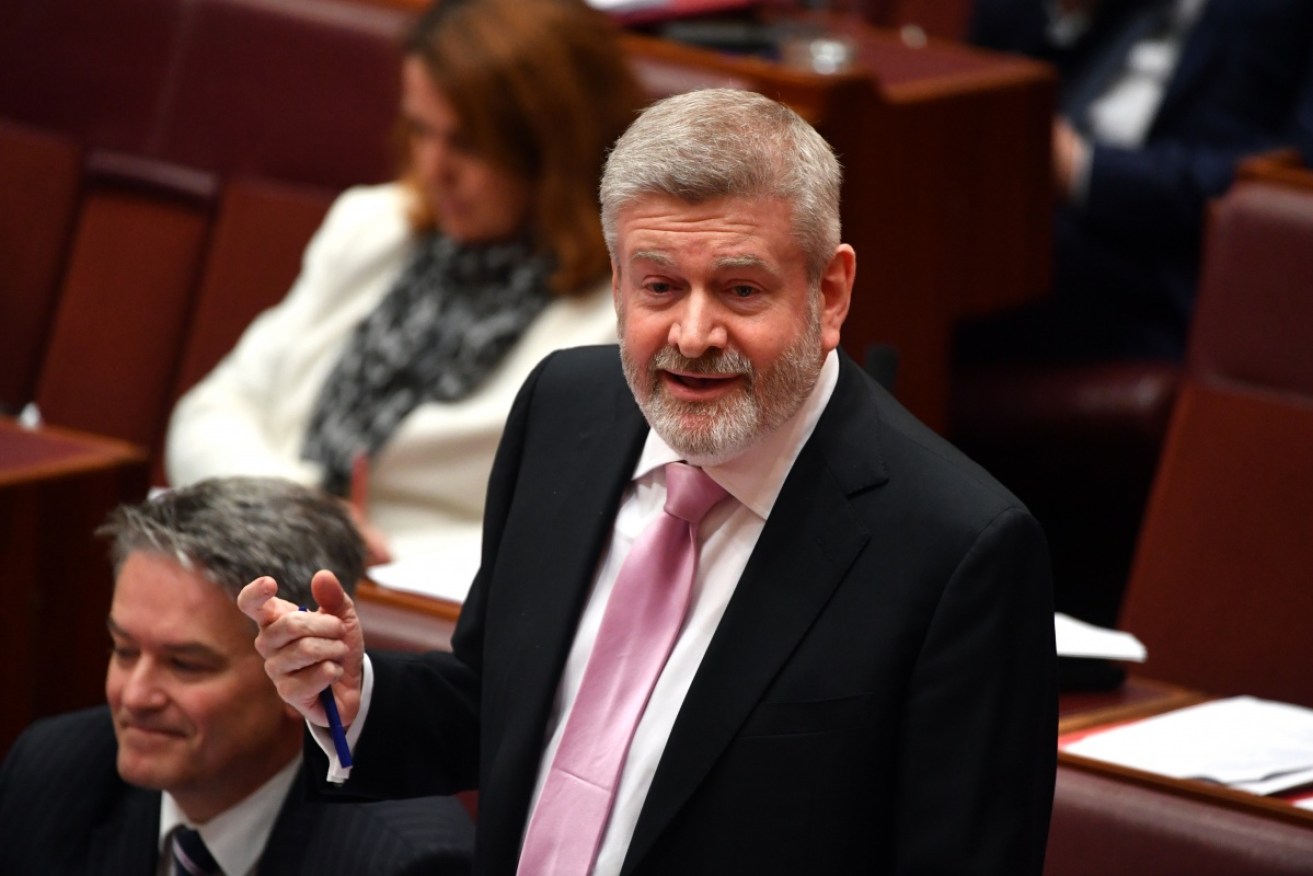Media reforms will give industry a ‘fighting chance’: Mitch Fifield

Communications Minister Mitch Fifield says the nation's current media laws are outdated. Photo: AAP Photo: AAP
A thriving media industry in Australia is in everyone’s interests.
The Turnbull government’s media reform package is all about strengthening Australian media organisations to ensure their long-term viability and support local jobs. It has the support of the entire Australian media industry: Seven, Nine, Ten, Prime, WIN, Southern Cross Austereo, News, Fairfax, Foxtel, Free TV Australia, ASTRA and Commercial Radio Australia.
Yet strangely, the Australian Labor Party thinks they know better. Labor says it represents hard-working Australians having a go.
But Bill Shorten is opposing these reforms at the expense of Australian workers, particularly in the regions, whose jobs are on the line and whose livelihoods depend on these reforms.
We know that what Mr Shorten says and what he does are two different things. Labor repeatedly claims that it supports some of the government’s package.
Yet when they had the chance to vote for it, they opposed the entire package – every single element – in the House of Representatives.
It really is hard to believe that Labor in 2017 refuses to acknowledge that the world has moved on from 30 years ago when the Keating government passed media laws in the Parliament.
Labor spokeswoman Michelle Rowland says Malcolm Turnbull is no Paul Keating. Indeed. When Mr Keating was prime minister the media landscape was unrecognisable from that which faces us today. The internet was in its infancy and the iPhone was more than a decade away.

The government’s media package has the backing of the country’s major media organisations. Photo: AAP
Mr Turnbull recognises that the internet, proliferation of mobile devices and profound shift to digital media content has rendered many of our current media rules redundant. He has championed this reform package because he understands how vital it is to strengthen our local media industry. Ms Rowland may pine for a 1980s approach to media regulation, but alas the world has changed.
In Mr Keating’s time, traditional media platforms of television, radio and newspapers had enormous influence. But the internet has given Australians a diversity of news and information unmatched in human history. Yet Labor argue that the two out of three rule – which pretends that the internet as a news and content distribution platform doesn’t exist – should remain.
‘Reform is essential’
This rule is completely redundant. It is a product of a bygone era of media regulation and does little to support diversity in a contemporary setting.
It restricts traditional Australian media companies from optimising the scale and scope of their operations while their competitors – operating online – face no such restrictions.
If we want to give Australian media companies a fighting chance, it needs to go.
Reform is essential and the urgency is clear. If we don’t move to create a level playing field then we won’t have a media sector that is capable of delivering reliable, informative and diverse content to all Australians.
The greatest threat to diversity would be the failure of an Australian media organisation.
The delay in the passage of the media reform legislation, thanks to Labor, is crippling for the industry.
Labor says that in four years the government has been unable to secure media reform and criticise the government for this delay. Somehow they manage to say this with a straight face, given they have delayed the progress of the legislation at every available opportunity and refuse to give their support to it. They are like a passenger berating an airline for not taking them to their destination, despite refusing to board the plane!
The government wants action now, as does every media organisation in the country who agree these changes are vital and necessary.
Ms Rowland’s attempts to explain away Labor’s opportunistic opposition to media reform show just how out of touch the Labor Party is.
Ms Rowland is suspicious of reforms that have the 100 per cent support of the people running these media organisations. She argues they only support the package because there is something in it for all of them. Imagine that! Yes, Ms Rowland, there is something in this package for the entire industry.
It is a comprehensive and holistic package that is unashamedly pro Australian media.
Surely, Seven, Nine, Ten, Prime, WIN, Southern Cross Austereo, News Limited, Fairfax, Foxtel, FreeTV, ASTRA and Commercial Radio Australia know what is best for their viability and the thousands of jobs they support?
Every Australian who supports our local media industry, works in the industry, or relies on a family member working in the media industry, should be concerned at the behaviour of the Labor Party. Remember when 2015 was Labor’s “year of ideas”? It appears the ideas for the communications portfolio never arrived.
From media reform to national broadband policy they just can’t seem to get it together, with contradictory statements and floundering interviews, it is like watching a slow moving train wreck.
The best Ms Rowland can do is compare this government to the ghost of Labor leaders past. The world has moved on. The government is moving with it. Labor remains stuck in the past, with no clue, no plan and no ideas.
Mitch Fifield, the Minister for Communications, is responding to an article by Labor’s communications spokeswoman Michelle Rowland. It can be read here.








